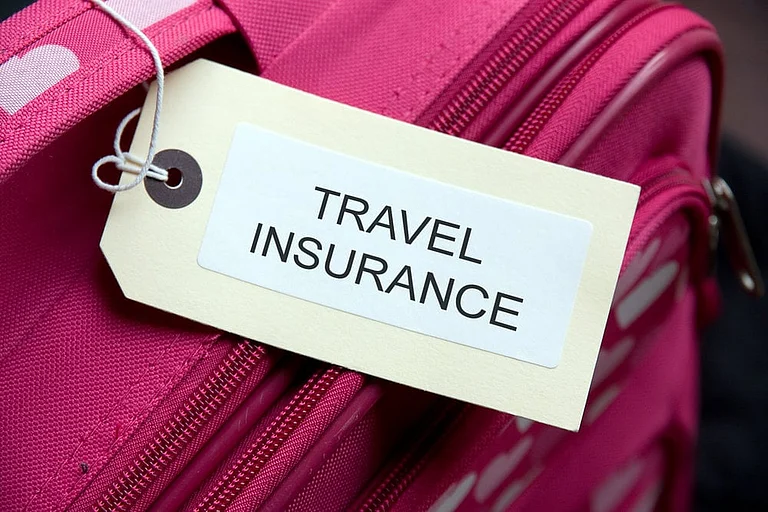If you are considering a scenic and adventurous trip to Europe this season for the snowy peaks of the Swiss Alps or the romantic canals of Venice, don’t forget to overlook one crucial factor - ‘insurance’. Before you pack your bags and book the ticket, a critical step to tick off your checklist for a tour of Europe is to get adequate travel insurance. Why is this important? Well, for most travellers, particularly those applying for a Schengen Visa, health and emergency coverage is not just a precaution but mandatory.
Let’s explore what makes health coverage so essential and all that you need in your plan for a worry-free European adventure.
Why Health Insurance Is A Must For Europe?
Say your dream of Europe involves crossing borders effortlessly between France, Germany, or Italy, you are going to need a ‘Schengen Visa’.
This visa encompasses 26 European countries and allows travellers to move freely within (and across) the boundaries of these nations. However, with the Schengen Visa comes a non-negotiable requirement, i.e., ‘medical insurance with a minimum coverage of €30,000’ (roughly between Rs 26-27 lakh).
According to Pranthil Ghosh, director, and chief business officer at HDFC ERGO General Insurance, this coverage ensures you’re prepared for medical emergencies, hospitalisations, or even the possibility of being medically transported back home.
But it’s not just the Schengen countries that emphasise this, Balkan nations like Serbia and Croatia also strongly recommend similar health insurance policies. So, wherever you’re headed in Europe, it’s vital to check the specific insurance requirements of your destination.
What does Travel Insurance typically cover for Health Emergencies?
1) Medical Emergencies
If you fall ill or are met with an accident, a typical international health insurance policy will cover hospitalisation, emergency treatments, and even COVID-19-related emergencies. Ghosh says that many policies include the cashless hospitalisation option, but, when abroad, you must make sure the hospital you visit is a part of your insurer’s network.
A pre-check to know the range of network hospitals will be better before choosing the health plan.
2) Medical Evacuation and Repatriation
What if the situation becomes severe, and you need to be flown back home? Most European travel insurance plans cover medical evacuation and repatriation, but only under certain conditions.
For example, evacuations are arranged when deemed medically necessary by doctors and insurers. Minor illnesses or accidents caused by risky behavior may not qualify. Ghosh emphasises reading the policy's fine print to understand what’s included and what isn’t.
3) Adequate Cover for PEDs
If you have any pre-existing conditions such as diabetes or previous cases of heart disease, regular travel insurance may not cover medical emergencies arising out of these. However, Meet Kapadia, Head of Travel Insurance at Policybazaar.com, an online insurance marketplace, suggests one should explore plans that provide extended coverage for PEDs, often by paying an additional premium.
A regular plan with an add-on might provide you coverage limited to sudden flare-ups of these conditions. So it would be a wise call to ask your insurer about the list of diseases covered under PED plans and clarify all doubts before making a purchase.
4) Coverage for Accidental Death and Disability
Accidents, unfortunately, can happen anywhere. Whether you’re renting a car in Italy or skiing in Austria, having coverage for accidental death or disability is a safety net you can’t afford to overlook.
Ghosh explains that compensation depends on the severity of the injury. While full benefits are paid in cases of permanent total disability or accidental death, partial disabilities result in proportional payouts. Many insurance policies also cover third-party injuries or deaths caused by accidents involving rented vehicles.
5) Adventure Sports Cover
Adventure junkies should take into account any sports injury that may happen while riding the thrill. When choosing a travel plan, consider a policy that provides financial protection during high-risk activities like skiing or scuba diving when participating non-professionally and under supervision. You should check if the cover provides reimbursement for medical expenses for injuries sustained while engaging in adventurous sports.
Don’t Forget the ‘Fine Print’
While travel insurance might seem straightforward, the devil is always in the details. Don’t forget to check any key exclusions in your plan such as limit on coverage, and specific conditions that might not be covered.
PED coverage and cashless hospitalisation may vary policy-to-policy, therefore clarify the terms before you onboard the plan. Ghosh advises travellers to choose comprehensive global travel insurance that addresses these potential gaps.
What If You Already Have Insurance?
If you already have an insurance plan functional in India and are feeling confused about whether or not you should get a new one - the answer lies in ensuring that your policy comes with a ‘global coverage’.
Says Kapadia, “When travelling abroad, it is advisable to check whether any existing insurance policy you have in India provides global coverage.”
He adds, “If it does not, it is advisable to purchase a separate international travel insurance policy to ensure adequate protection against medical emergencies and other unforeseen events while abroad.”


















